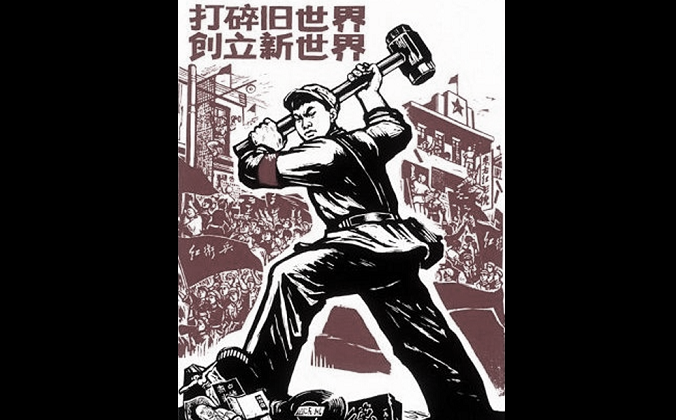The decade-long Cultural Revolution (1966-1976) was one of the Chinese communist dictator Mao Zedong’s largest political campaigns. Mao mobilized throngs of youth into the fanatical Red Guards, terrorizing or killing millions of people while destroying China’s traditional culture and heritage.
The Cultural Revolution was so traumatizing that following Mao’s death, the Chinese Communist Party (CCP) leaders redressed some of the injustices committed during the campaign, and admitted that Mao’s policies were mistaken.
But as the CCP launched economic reforms, its Marxist ideology lost relevance among the broader population. Recently, Party authorities have been trying to drum up new support for communism, even if it means bringing back the propaganda of Mao and the Cultural Revolution.
Officials around the country are required to spend a set amount of time watching television programs created by the Party, reading its books and newspapers, and browsing CCP websites. Their performance is tracked and monitored.

Recently, CCP authorities have been trying to drum up new support for communism. (Image: kafka4prez via Flickr “CC BY-SA 2.0”)
A recent report by the CCP-controlled China News Service focused on performances of the propaganda opera Legend of the Red Lantern scheduled for October showings in the city of Nanjing in Jiangsu Province.
Success
You are now signed up for our newsletter
Success
Check your email to complete sign up
One of the Eight Model Operas from the Maoist era, the Legend of the Red Lantern is about communist guerrilla soldiers in the 1920s and 1930s who give up their lives for the CCP while expressing fervent belief in class struggle. The China News Service report noted that all performers in the Nanjing venues were born in the 1980s and 1990s, making the revolutionary works more accessible to young people.
Deng Xiaoping, the CCP leader who came after Mao and is credited for the economic reforms that boosted China’s GDP, was himself a victim of the Cultural Revolution. In an interview with an Italian journalist, he said that the campaign had destroyed millions of lives and did incalculable damage to the country.

A re-education campaign during the Cultural Revolution. (Image: Secret China)
That attitude, however, is fading as the Communist Party educates a new generation of youth. In early September, Chinese Internet users posted photos of new and old editions of textbooks covering modern Chinese history. One new-edition textbook omitted the chapter on the Cultural Revolution entirely, while another edited the description:
The old edition said that Mao had started the Cultural Revolution due to “erroneously” believing that capitalist elements were trying to deviate China from the socialist path. The new edition added a piece of communist theory, saying that Mao “believed that the Party and the country were facing the danger of capitalist restoration. To this end, he emphasized ‘taking class struggle as the key’ and trying to prevent it by launching the Cultural Revolution.”
Follow us on Twitter or subscribe to our weekly email















